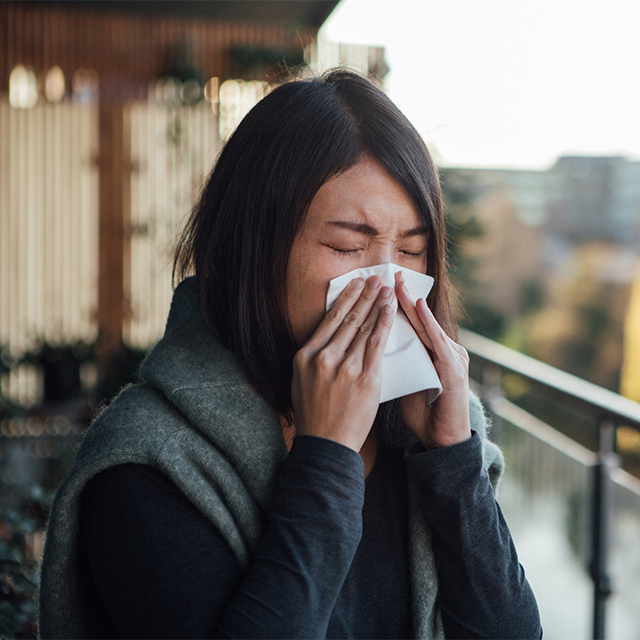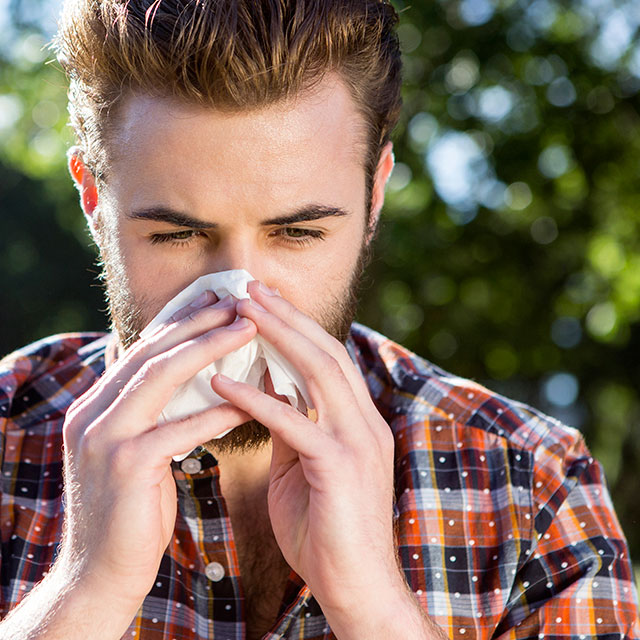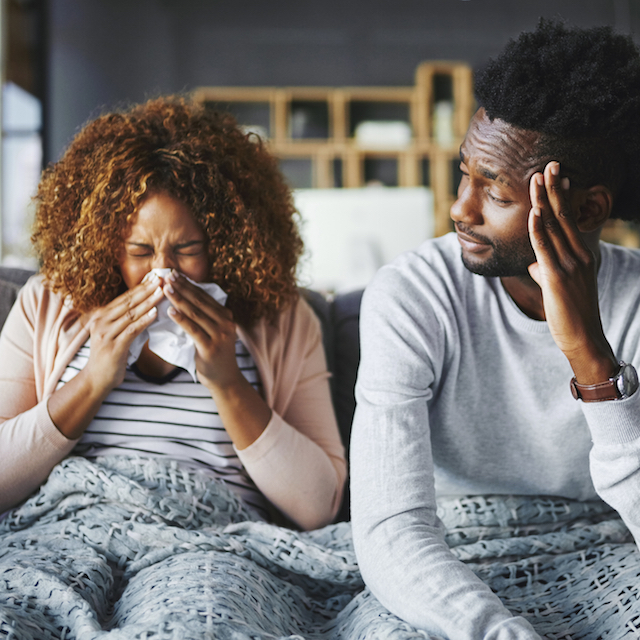From seasonal and food allergies to insect stings, we’ve got the details for navigating these sneezy, itchy and sometimes scary types of allergies.
Whether you or your kids battle pollen, food or insect bite allergies, the issue can make you nervous — not to mention uncomfortable, especially if sniffling and scratching are part of your everyday. Here, we’ve rounded up the best My Vanderbilt Health advice and information about types of allergies so that you can arm yourself with prevention methods and find fast relief.
Environmental allergy types
For those who battle indoor and outdoor allergies, trouble can seem to lurk around every corner, but we have details on how to alleviate symptoms no matter the season.
- Get prepped for tree and grass pollen season, even before you see those first spring buds. Don’t wait for symptoms to attack to reach for medications. If you don’t take them year-round, start corticosteroid nasal sprays sooner rather than later, because they take at least a week or longer to kick in.
- Manage symptoms. To prevent a stuffy nose and sinus pressure, use a saline rinse regularly and talk to your health-care provider about nasal problems. Take precautions to prevent dry mouth caused by antihistamines and decongestants. Itching may mean your eyes are dry, so keep lubricating drops handy, and protect your peepers from pollen and wind when enjoying the outdoors.
- Find out what you or your child is allergic to. Half the battle of managing environmental allergies is understanding your triggers. Talk to your physician about getting a skin prick or blood test and maybe even starting allergy shots.
- Get tested for a stinging insect allergy, including bee sting allergy, if necessary. Insect stings can be life-threatening for those with Hymenoptera hypersensitivity.
- Get you or your child checked for asthma if exposure to allergens brings on wheezing, shortness of breath or trouble breathing. Having allergies can make you more prone to adult-onset asthma, and environmental allergies can exacerbate childhood asthma.
- Be mindful of sneaky sniffle triggers in winter, the forgotten allergy season. Mold and mildew growing outside in damp weather, fluctuating temps, and the lack of a long, hard frost can contribute to itching and sneezing. Plus, more time spent indoors exposes us to dust mites, pet dander and the irritants of holiday décor.
Types of food allergies
Food allergies can develop for anyone at any age. Although a wide variety of foods can trigger a reaction, the most common food allergies, also known as the “Super 8,” are peanuts, tree nuts, eggs, milk, wheat, soy, fish and shellfish. Sesame has also become a common food allergy. Here’s what you need to know about diagnosing food allergies and preventing exposure in all kinds of scenarios:
- If you suspect that you or your child has a food allergy, talk to your doctor about how to diagnose. Your physician may order a skin prick or blood test to confirm or rule it out. Provide information about any history of reaction, and be sure to avoid the food in question until you can get an evaluation from a board-certified allergist/immunologist.
- If you have an infant, introduce peanut butter early, according to guidelines set forth by the National Institutes of Health. Early introduction can help prevent this common food allergy.
- If your child has a food allergy, find support and try these tips for everyday management.
- Each year when your child heads back to school, talk to administrators and teachers about food allergies and create a Food Action Plan.
- Only take your child to homes with teal pumpkins when trick-or-treating on Halloween, and be prepared for the holidays, a time when we often visit other people’s homes for meals or celebrations.
- Learn best practices for traveling with a food allergy, like what to pack, how to choose a hotel, and how to prepare a “chef card” for dining out.
Contact Allergy Types
Contact allergens are allergens that come into direct contact with the skin and cause the skin to break out in a rash or another allergic reaction. Although plant dermatitis is the most common contact allergen, other chemicals can cause a delayed type of contact dermatitis, with the most common being nickel and fragrances.
- If you suspect you have a contact allergy, talk to your doctor about a patch test. This can help narrow down what is causing the reaction.

Need help?
Allergies, asthma and sinus problems can produce similar symptoms, ranging from annoying to life-threatening. The Vanderbilt Asthma, Sinus and Allergy experts give you an accurate diagnosis and treatment tailored to you, your symptoms and your life. Vanderbilt Asthma, Sinus and Allergy has four locations in Middle Tennessee: Nashville, Brentwood, Franklin and Gallatin.




